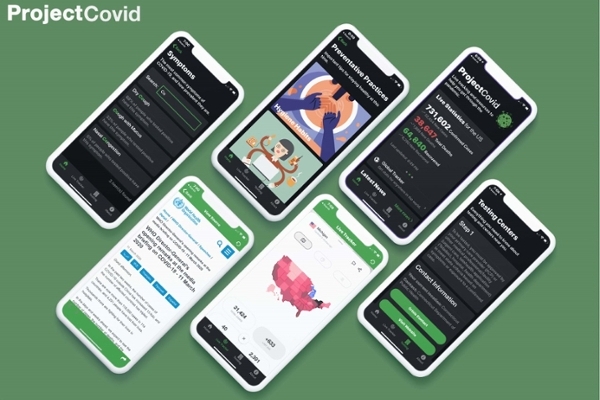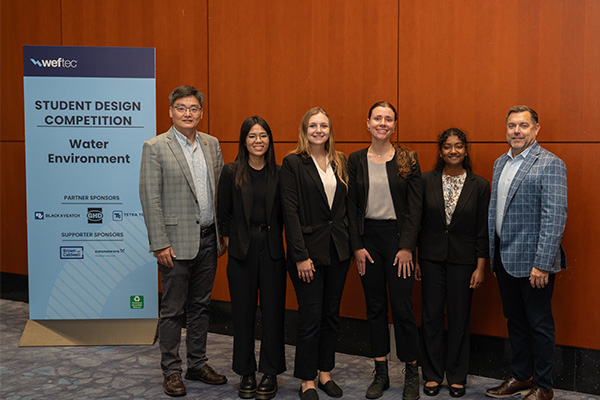Project Covid aims to spread facts about novel coronavirus
Junior Will Hunter joined a team of student developers to build an app to track cases of COVID-19 and share the latest information about the virus

During the early days of the COVID-19 pandemic, Will Hunter, a junior in the McKelvey School of Engineering, knew he wanted to do something to help.
Hunter understood that misinformation about the virus could spread just as easily as the disease, so when he learned about an opportunity to build an app to educate users about the novel coronavirus, he took action.
“There were a lot of rumors spreading, and we wanted to make sure that we could answer questions, as well as track the spread,” said Hunter, who is majoring in computer science with a second major in entrepreneurship. “We couldn’t track the virus better than the Centers for Disease Control and Prevention, but we could present the data in a way that the average person could understand.”
Hunter, along with co-founder Satvik Sethi, a recent alumnus of Binghamton University, developed Project Covid, a mobile app that gathers information about the virus and disease from a select list of credible sources, including the Centers for Disease Control and Prevention, the Associated Press and the World Health Organization. The app aggregates information, including real-time statistics, testing center information and news, and localizes the content to the user’s state.
Serving as the lead product manager, Hunter managed the team of 12 developers and 10 researchers, many of whom had backgrounds in public health, medicine or health literacy. Hunter also brought additional engineering students from Washington University in St. Louis onto the project.
For example, Michael Ginn, a junior computer science major, served as the project’s lead engineer and worked closely with Katie Lund, a junior computer science major, to develop the app’s front end. Giorgio Guttilla, a senior computer engineering major, served as the lead mobile app developer, overseeing its user experience and interface.
“Michael and Giorgio were the main front-end engineers, working with the architecture of the app, as well as configuring navigation and displaying the information in the best way possible,” Hunter said. “I was more concerned about deciding what the app’s key features were to be, as well as coding a majority of the back-end server.”
In order to better manage the app’s development remotely, the team broke large tasks down into smaller, actionable steps that could then be assigned to team members as they were available.
“Using our tools — Slack and Trello, mainly — we were able to work very efficiently remotely,” Hunter said. “Just as well as we would conversing in person.”
The app is now available in the Apple Store, but it took the team some time and multiple attempts to get approved. Since the Project Covid team was not a publicly accredited health organization, the app was initially rejected from the Apple Store.
This led to the team partnering with LFR International, a nonprofit that provides emergency medical services and training to areas that lack that infrastructure that was launched by fellow McKelvey Engineering student Zach Eisner.
“Project Covid is now an LFR initiative, and they brought oversight, especially to the content of the app,” Hunter said. “Their trained health professionals gave us a lot of great input, which added to the credibility of our already solid team of researchers.”
Since it was approved, the app has been downloaded more than 1,500 times and has an average 4.9 star rating out of 5.
The team is still going through the approval process to get Project Covid on the Google Play Store. Hunter says he hopes it will be released as soon as possible since a majority of LFR’s outreach affects Android users.
As for the future, the team has begun researching contact-tracing solutions with the goal of adding that function to the app.



